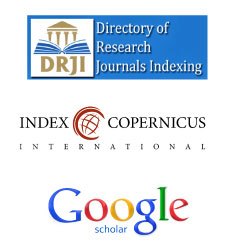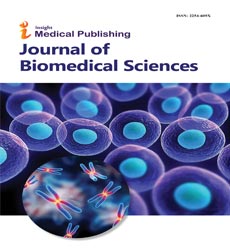A Brief Note on Biomedicine in Biology
Adrian Lutz*
Department of Biology, University of Melbourne, Parkville, Australia
- *Corresponding Author:
- Adrian Lutz
Department of Biology, University of Melbourne, Parkville,
Australia
E-mail:adrian.lutz@unimelb.edu.au
Received Date: December 08, 2021; Accepted Date: December 22, 2021; Published Date: December 29, 2021
Citation: Lutz A (2021) A Brief Note on Biomedicine in Biology. J Biomed Sci Vol. 10 No. 6:65.
About the Study
Biomedicine (also known as Western medicines, mainstream medicine, or even conventional medicine) is a branch of medical science that incorporates neurological and physiological concepts to clinical training. Biomedicine involves standardised, evidence-based treatment validated by biological research, with treatment administered by formally trained doctors, nurses, and other competent professionals.
Biomedicine is a broad term that includes range of health and neurological topics. Molecular biology, biochemistry, biotechnology, cell biology, embryology, nanobiotechnology, biological design, laboratory medical biology, cytogenetics, genetics, gene therapy, bioinformatics, biostatistics, systems biology, neuroscience, and microbiology are among the many biomedical disciplines and parts of specialty that typically develop the "bio-" prefix.
Modern medical care and lab tests are built on the foundation of biomedicine. It covers a wide range of scientific and technological approaches, from in vitro analysis to in vitro fertilizations, from cystic fibrosis molecular mechanisms to HIV population dynamics, from molecular interactions to carcinogenesis research, and from Single-Nucleotide Polymorphism (SNP) to gene therapy.
Biomedicine is a branch of biology that focuses on molecular biology and incorporates all aspects of molecular medicine into significant structural and functional relationships in the individual genome, transcriptome, proteome, physiome, and metabolome, with the goal of developing new technologies for prediction, diagnosis, and treatment.
Biomedicine is the study of physiological approaches using biological and physiological methodologies. Understanding molecular linkages to studying the effects of the in palpitante level are some of the approaches used. These strategies are being researched with the goal of developing novel ways to medical diagnosis and treatment.
Biomedicine, when examined through an anthropological lens, comprises more than biology and scientific truths; it is a socio-cultural system that collectively expresses fact. While biomedicine is traditionally regarded to be free of bias due to evidence-based methods, Gaines and Davis-Floyd (2004) argue that biomedicine has a social basis, in part because it reflects the best practise guidelines and values through the inventors.
Since 2003, a progress update on a variety of scientific, technological, and commercial achievements in magnetic nanoparticle biomedical applications has been presented. Magnetic actuation for in vitro viral and non - viral transfection and tissue engineering, as well as in vivo drug delivery and gene therapy, recent clinical results for magnetic hyperthermia treatments of brain and prostate cancer via direct injection, as well as ongoing efforts to develop new agents suitable for targeted hyperthermia following intravenous injection, and developments in medical sensing technologies involving a new generation of mag sensors.
Considering the "miracles" of contemporary medicine, biomedicine has ironically led to a quality-of-care crisis, with many patients feeling excluded from the health-care sector. To confront this crisis, a number of medical critics have advocated for "humanising" biomedicine, which has resulted in philosophical alterations in medical knowledge and practise. Biomedicine and its humanised counterparts' metaphysical, epistemological, and ethical boundaries are studied and compared. Biomedicine is based on a scientific philosophical perspective, an ideology of objective knowledge, and an ethic of emotionally detached concern. These limits are frequently altered to a philosophical position of an epistemology of subject knowing, and an ethic of empathic care in the process of humanising modern medicine.

Open Access Journals
- Aquaculture & Veterinary Science
- Chemistry & Chemical Sciences
- Clinical Sciences
- Engineering
- General Science
- Genetics & Molecular Biology
- Health Care & Nursing
- Immunology & Microbiology
- Materials Science
- Mathematics & Physics
- Medical Sciences
- Neurology & Psychiatry
- Oncology & Cancer Science
- Pharmaceutical Sciences
